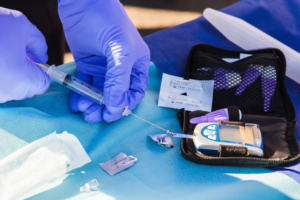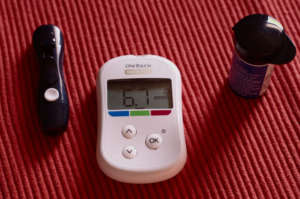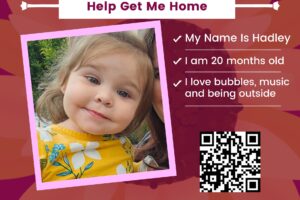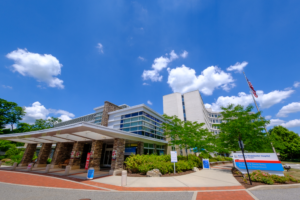
Hyperglycemia or high blood sugar is a very serious condition that leads to type 2 diabetes. Here are the most important warning signs to look out for.
Being very thirsty
One of the early warning signs that you may have hyperglycemia is if you find yourself being persistently thirsty. This is a very common, but not that obvious sign of high blood sugar. The reason why this happens is when your blood sugar is high – there are more sugars (like glucose) in your bloodstream. Sugars tend to attract water, thus depriving your cells of their adequate water surrounding. This is a good tell-tale sign that something may be wrong, and that you might need to check your blood sugar levels.
Urinating more than usual
As we’ve previously mentioned one of the symptoms of hyperglycemia – high blood sugar is that you drink more water than you need. Alongside this symptom is an inevitable additional symptom – urinating more than usual. Even though increased urination may also be a sign of other diseases such as kidney damage, it can be a direct consequence of drinking more water than you need. In addition, it can also indicate a severe progression of type 2 diabetes – kidney damage, but this is in pretty severe cases. Visit sites like www.thekidneydocs.com/ for professional advice.
Always feeling hungry
Another warning sign that you may have hyperglycemia is if you are always feeling hungry. Constant hunger, alongside the constant thirst, can be an early sign of type 2 diabetes. People who have diabetes often don’t get enough energy from the food they eat. The main reason behind this is that there isn’t enough insulin in the body to send the glucose from the digestive system to other tissues effectively. This leaves your body with very few energy sources (glucose), and you always feel hungry. Constant thirst and hunger are strong indicators that you have hyperglycemia. One of the ways to combat this is with a regular exercise regimen.
Fatigue and headaches

One of the most common early symptoms of hyperglycemia is feeling tired all the time, and having persistent headaches. This symptom can occur even when your blood sugar levels are elevated to a mild degree (like after a meal). Even mild and normal blood sugar, in addition to high blood sugar, can cause fatigue and headaches. In people without diabetes when they consume a large number of simple carbs, like processed sugar. However, being tired is a very nonspecific symptom, and can even be indicative of low blood sugar. This is why you should look out for all the other warning signs alongside tiredness.
Persistent yeast infections
A lesser-known warning sign of hyperglycemia is yeast infections. It’s common knowledge that yeasts feed on glucose (the main blood sugar), so having it in abundance in the organism can make it thrive. Both men and women who have elevated blood sugar are more susceptible to these infections. Some of the most common places where these infections occur are on any moist and warm fold of skin. These include the groin, the skin between fingers and toes, and under breasts. These infections can be easily treated with antimycotic creams and gels but should be used only if the dermatologist prescribes them.
Nerve pain or numbness
Another very serious warning sign that you may have hyperglycemia (elevated blood sugar) is if you experience numbness or tingling in your fingers, feet, toes, and hands. This is a direct sign of nerve damage, more specifically – diabetic neuropathy. This condition tends to develop slowly because the nerves will get damaged due to the larger amount of glucose around them. The abundance of glucose will decrease the pH of the tissue, causing irreversible damage, not only to nerve tissue but to kidneys and eyes as well. Nerve pain or numbness is usually experienced years after living with diabetes.
Slow-healing wounds
Last but not least, this is perhaps the most obvious warning sign that you have hyperglycemia. However, it should be noted that there could be several other reasons why wounds will heal more slowly other than diabetes. What happens is that the high blood sugar levels will narrow down your blood vessels over time. This will slow down the blood circulation and will restrict needed nutrients and oxygen from getting to the point of the wound. Prolonged hyperglycemia can also damage the immune system, so the body will have a harder time healing and fighting infections.
Some of the best ways to combat high blood sugar are to stop eating processed sugar, to start exercising, and to visit the doctor regularly. In addition to this, you should keep checking your blood sugar levels daily.
The content is not intended to be a substitute for professional medical advice, diagnosis, or treatment. Always seek the advice of your physician or other qualified health provider with any questions you may have regarding a medical condition.







